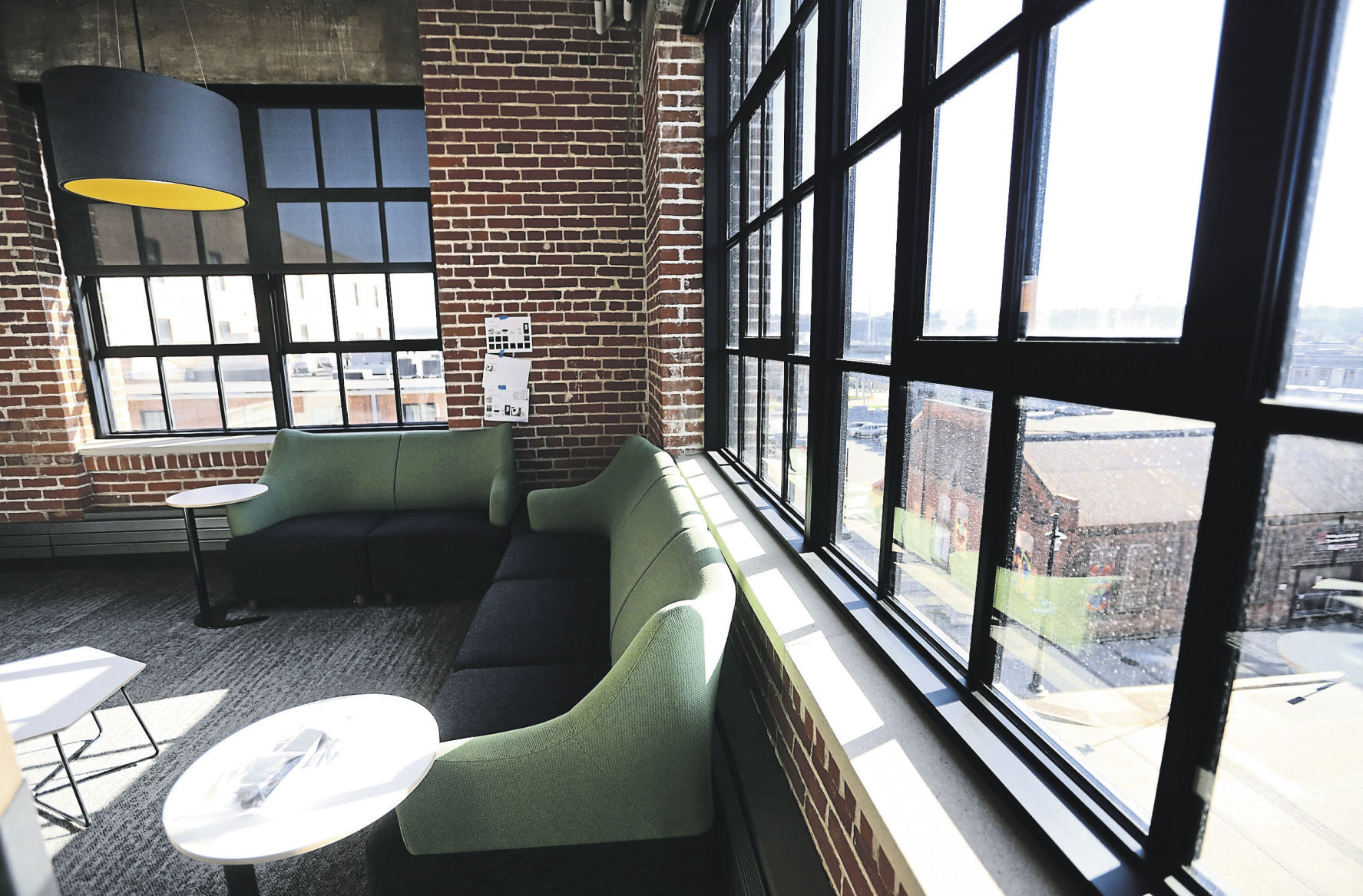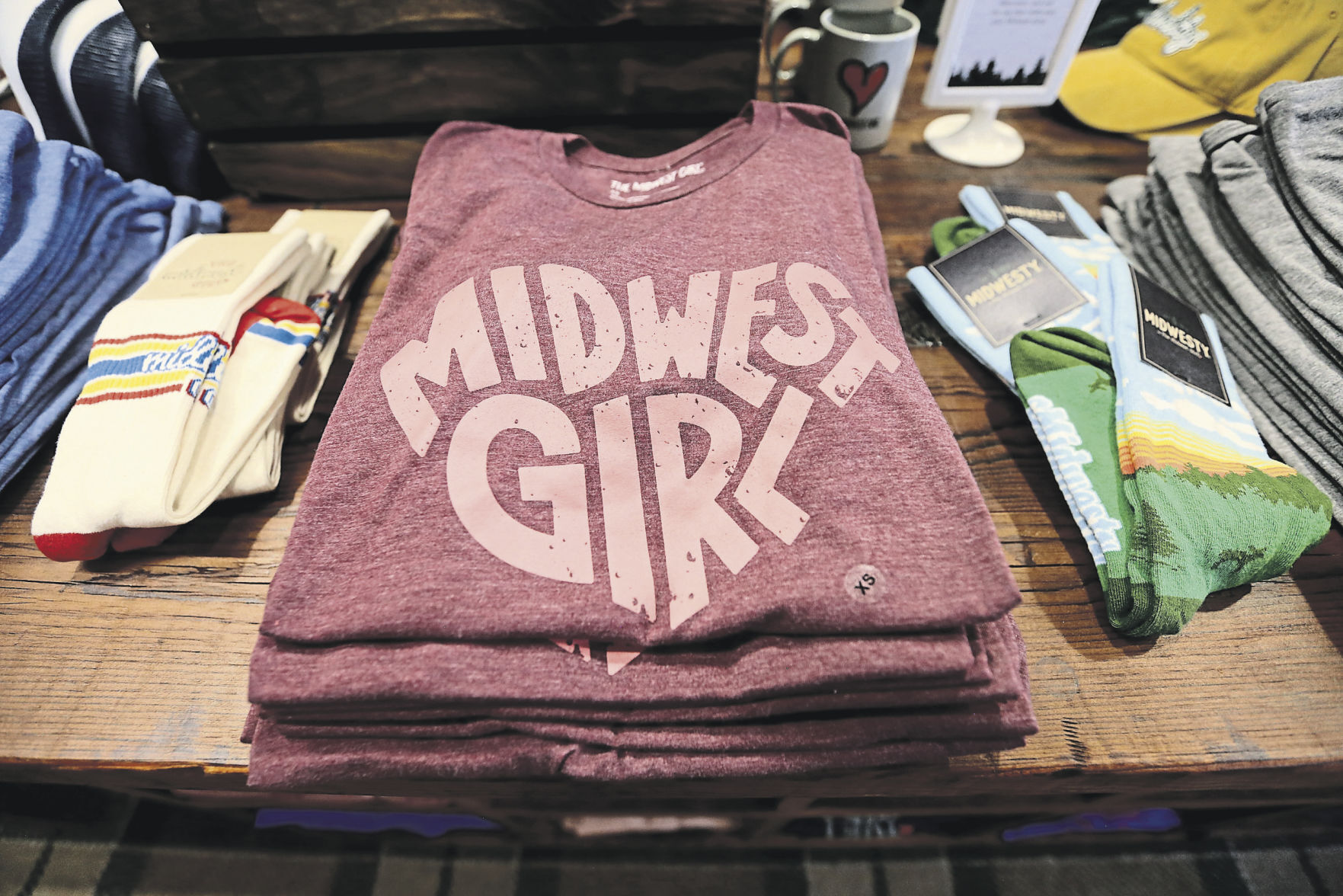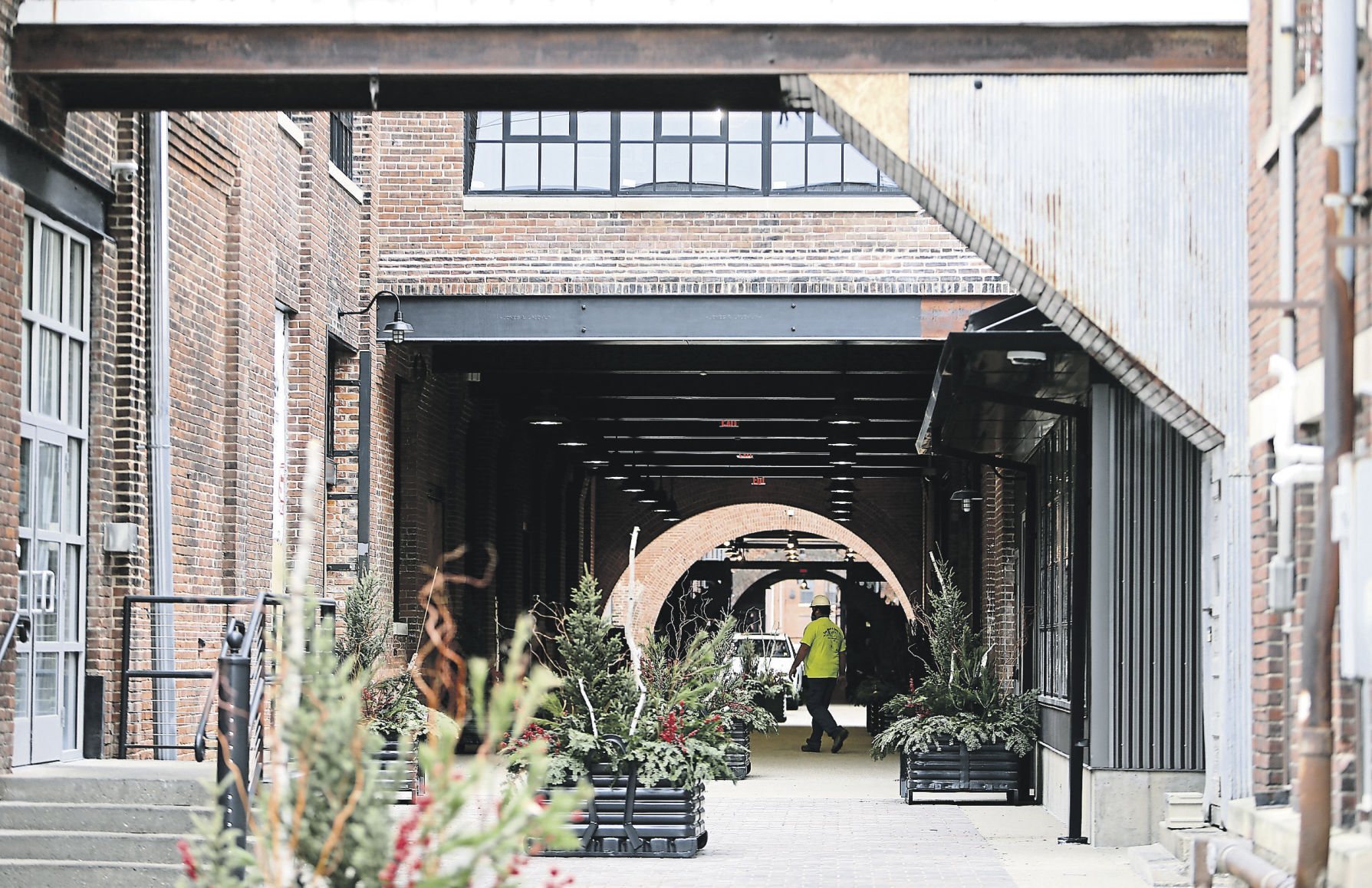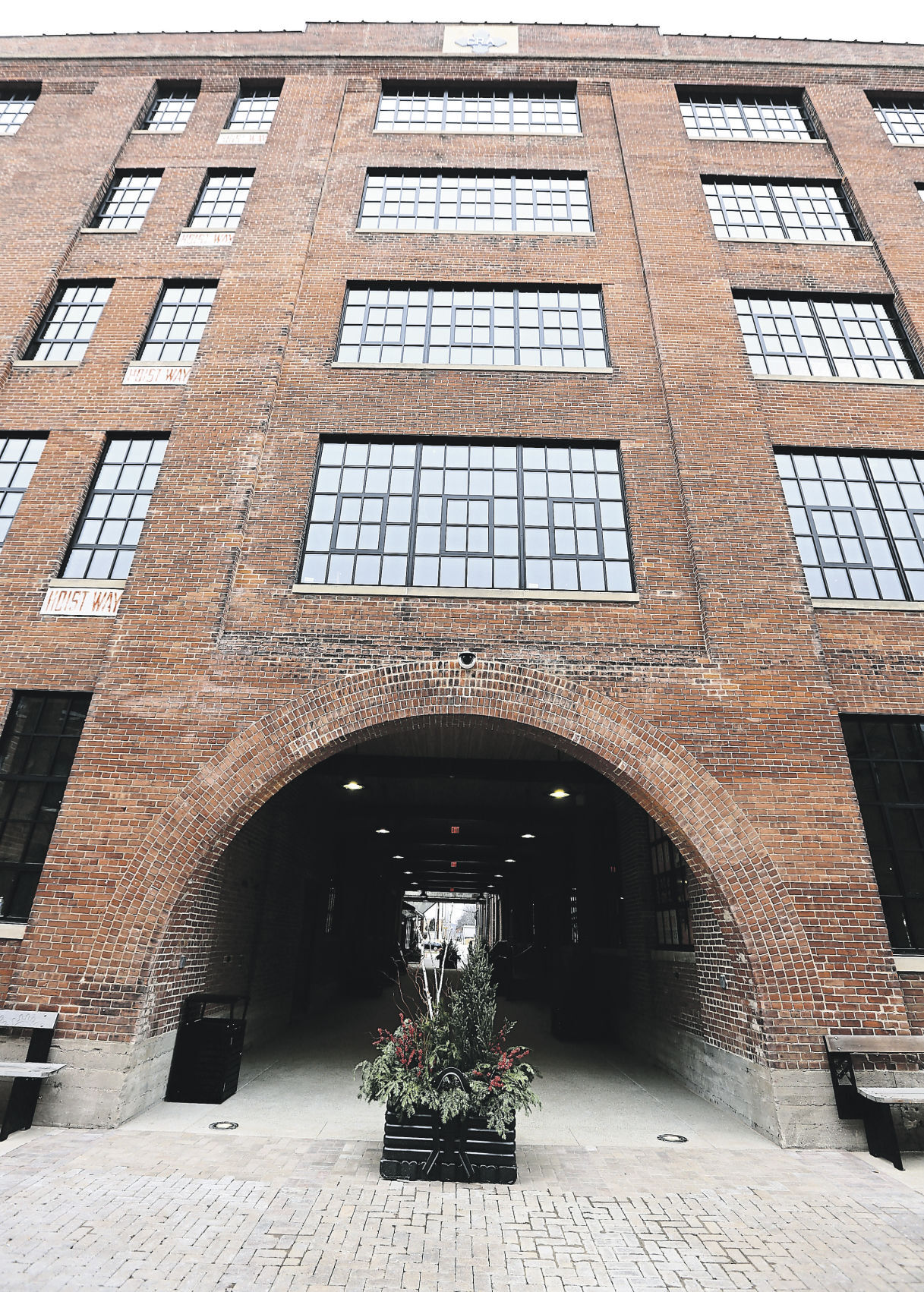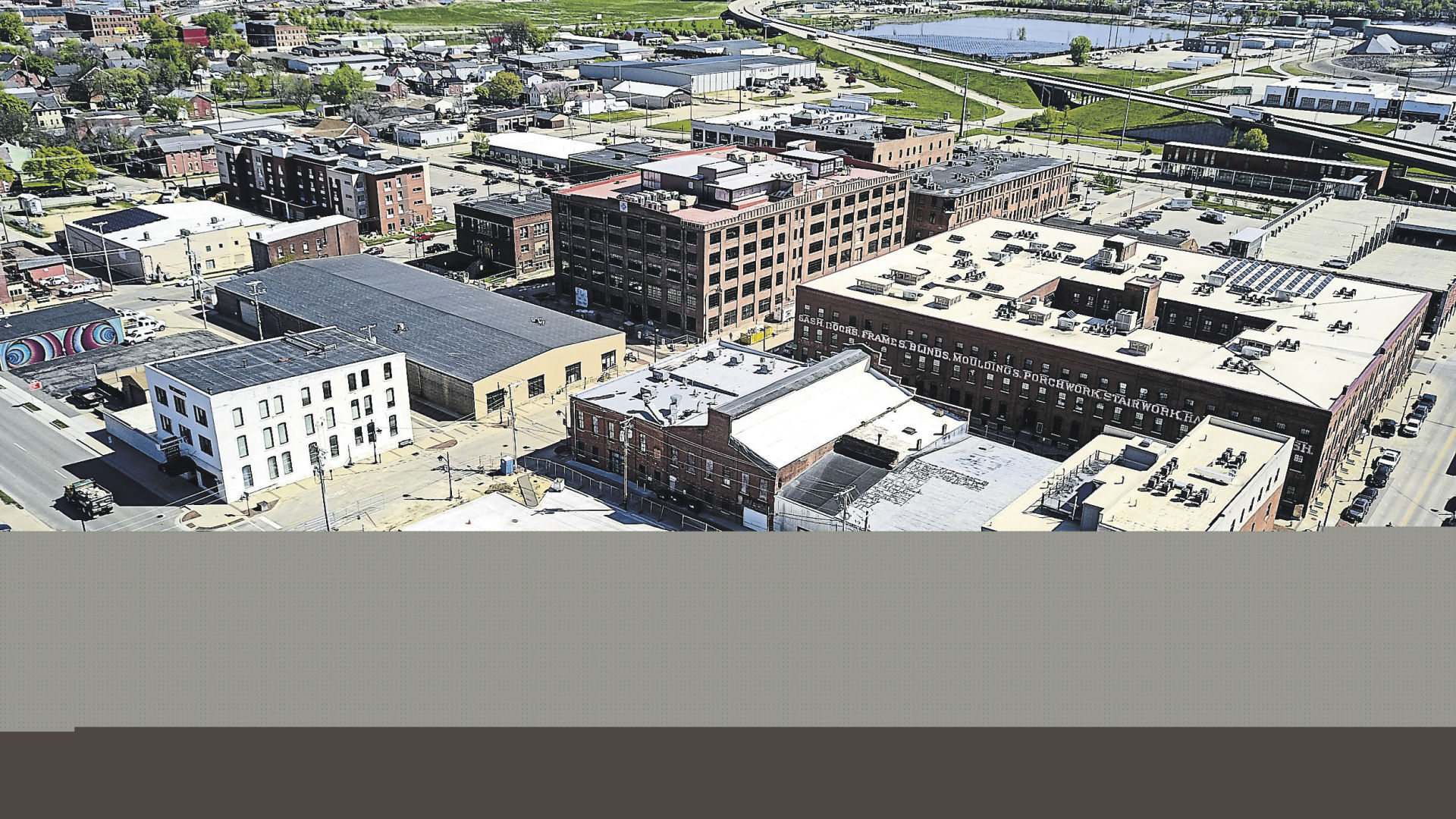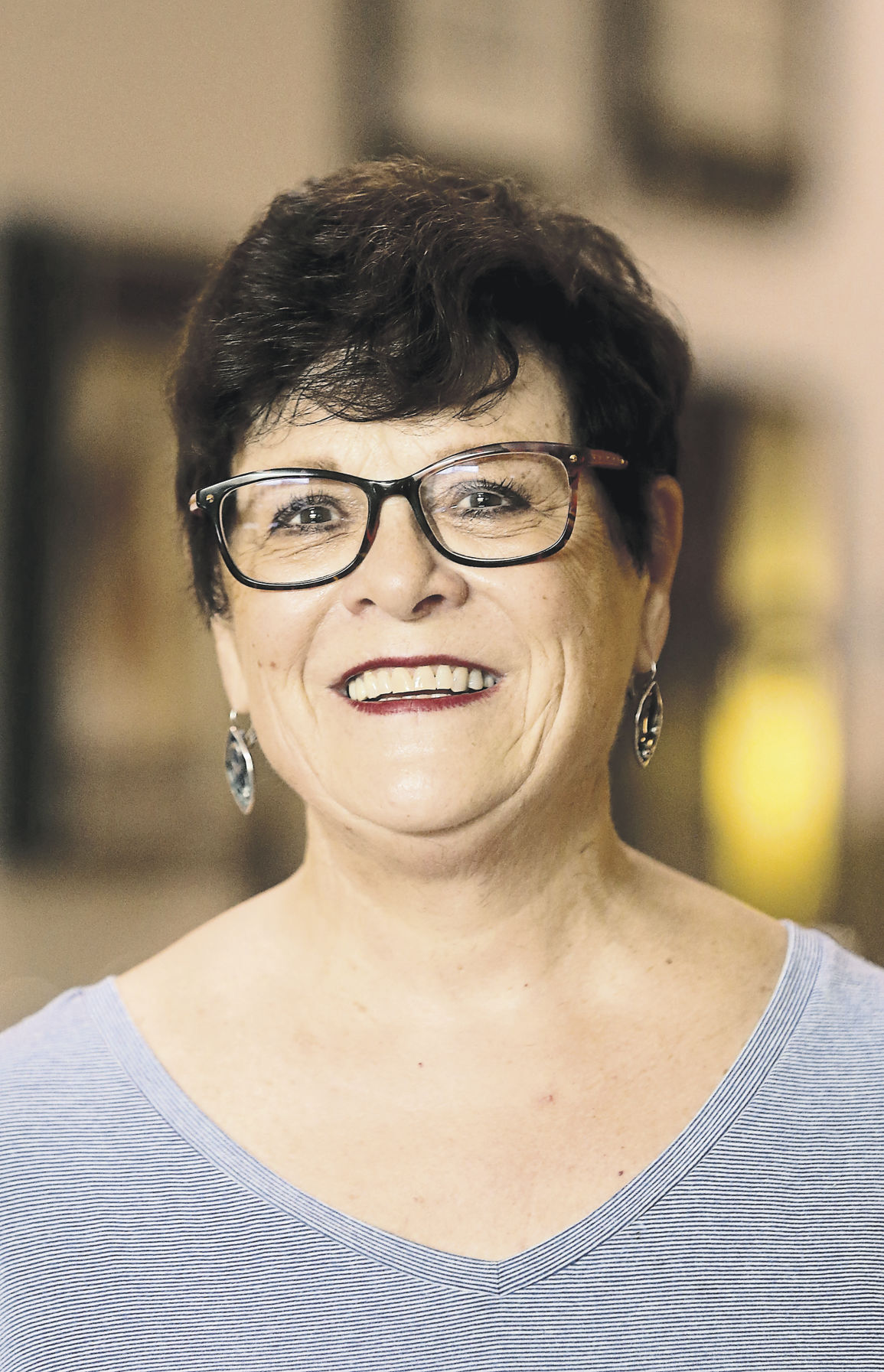1065 Salon
7 Hills
7 Hills Event Center
Adam’s Dance Connection
Former Kalmes.
Backpocket Taproom/Beercade
Beercade
Board and Brush
Brazen Open Kitchen + Bar
Charlotte’s Coffee House
Classy & Chic Boutique
CORDENTAL Group
Delta 3 Engineering Inc.
Design Mill Inc.
Dupaco Operations Center
Enlighten Mystical Minds
Fleming Law Firm
Flexsteel Industries
Gaia Waxing Beauty & Wellness Studio
Gary Dolphin’s Iron Bar
Gigantic Design Co.
Gino’s East of Dubuque
Greater Dubuque Development Corp.
Gronen Restoration/Gronen Properties
Hair-Berdashery
Jan’s Sewtique
Joey Wallis Photography
KCRG-TV
Midwest Girl
Millwork (bread company) Bakery
Millwork Collective
Namaste Athleisure Wear
Novelty Event Center
Pigott
Pima Connect
Reynolds & Kenline LLP
Rhomberg Furriers
Rustic Charm
Small Business Development Center
Startup Dubuque
StudioWorks
Superior Welding Supply
The Comedy Bar
The Consignment Store
The Magnolia
The Jule
The Smokestack
TownePlace Suites By Marriot Downtown Dubuque
Tully Metal Art
Vivie Boutique
VJM Company
Volv Fitness
Wayfarer Coffee
Wilmac Property Company
Source: Dubuque Main Street
Millwork District timeline highlights
2009: Historic Millwork District Master Plan completed.
2012: Caradco Building 72 lofts opened, along with commercial space on the ground and lower levels.
2014: Linseed Lofts in the former Betty Building opened with 16 apartments.
2015: Novelty Iron Works opens with apartments, event, commercial, and restaurant spaces.
2015: Intermodal Transportation Center opens.
2016: 292-space Intermodal Parking Ramp opens.
2017: 7-Hills Brewing opens.
2018: TownPlace Suites by Marriott hotel opens on-site of former Spahn & Rose warehouse.
2019: Delta 3 Engineering opens in former Key City Ironworks building.
2019: The Driftless Event Center opens in former Avery Railing building.
2019: Dupaco Community Credit Union begins work on the “Voices” building for its corporate headquarters.
2021: Dupaco Operations Center at the Dupaco Voices Building is complete and employees start moving in.
If the millworkers who toiled in the late 19th century in what is now known as the Historic Millwork District came back for a visit, they wouldn’t recognize the place.
They’d wonder why people are living, shopping, visiting, dining and working in jobs other than millwork in their warehouses.
The Millwork District in downtown Dubuque represents a major revitalization project of an area that dates to 1875. While the origin of the district started with the iron industry. Now, the district is alive with brew pubs, restaurants, shops, corporate offices, a boutique hotel and more. This is the story of how vacant warehouses became a thriving destination.
Iron, lumber and linseed oil (a very abbreviated history of the Millwork District)
In the early days of what was called the Warehouse District, the area was a booming manufacturing center in an expanding river town. Iron processing began in the Warehouse District in 1875. Novelty Iron Works and Iowa Iron Works produced machinery for flour mills, sawmills, steam engines, water wheels and well-drilling machines.
The companies were involved in boat building and creating architectural additions in downtown Dubuque that are in use today. The Novelty Iron Works building now houses apartments and commercial space.
The lumber industry replaced iron when lumber barons William Wyatt Carr and W.M. Austin chose Dubuque because of its location on the Mississippi River and to the Illinois Central Railroad.
The business employed two dozen skilled woodworkers making windows, doors and other products. Strong growth in the company led to the formation of the Carr, Adams and Collier Co., which became Caradco using the first two letters of each of the owner’s last names.
Jeld-Wen purchased the Dubuque door manufacturing operation from Caradco in 1978. Jeld-Wen was the last wood-based manufacturer in the district before closing in 2014.
Today, the Caradco building is the Schmid Innovation Center, a mix of apartments, commercial, retail and space for the arts.
The Dubuque Linseed Oil Paint Co. was incorporated in 1882 and manufactured an estimated 1,000 gallons of paint daily. The building also is known as the Betty Building for Betty Baxter products, which produced biscuits and soap. Today, the Linseed building is home to 16-loft style apartments.
Historic District and a master plan
For years after the businesses moved out of the district, the warehouses sat empty.
In 2005 a community visioning process identified that the citizens of Dubuque wanted a solution for the issue of vacant warehouse space with positive development. The city established revitalization of the district as its primary priority.
In 2008, the Millwork District was named a National Historic District, which qualified eligible projects for federal and state historic tax credits. The district consists of approximately 28 buildings that were vacant and totaled about one million square feet of space.
In 2009, the Dubuque City Council adopted the Historic Millwork District Master Plan, which guides development activity. The goals of the original master plan were to: Preserve the millwork history of Dubuque, create an urban, mixed-use neighborhood, become a model for redevelopment by incorporating sustainable practices and attract and retain a quality workforce for Dubuque’s growing economy.
Jill Connors, economic development director for the City of Dubuque, was on the steering committee for development of the master plan and maintains her involvement to ensure the district continues to move forward.
“A group of public and private stakeholders are currently in the search process for a consultant to update the original plan. The results of that update will help drive the future development in the district to build upon current successes and provide direction for the years to come,” Connors said.
As one of the largest renovation projects ever undertaken in Dubuque, the goal of Millwork District Revitalization program was to return the buildings historically associated with the lumber/millwork business in Dubuque to useful condition. Financial support for the project came from the City of Dubuque and state and federal governments. An investment of $7.7 million came from the city to update the infrastructure.
During a two-year project that began in 2012, the sanitary sewer, water main, storm sewer, residential water system, fiber optics and other telecommunications were updated. Bike racks, new streets and sidewalks, lighting, bus shelters and signage were added.
On Jackson Street, the original rail tracks and brick pavement remain from the early days of the district. The city also supported construction of the $415.7 million Intermodal Transportation Center and a 292-space parking garage.
The goal of the reconstruction and repair of the streets was to return the roads to “complete streets.” In 2012, the $7.7 million project was named “Project of the Year in Transportation” in the greater than $5 million but less than $25 million category by the American Public Works Association.
In 2013 city employees began shifting Ninth, 10th and 11th streets from one-way into two-way. In 2014, Elm Street was reconstructed and White Street was resurfaced.
“The genesis of the Historic Millwork District’s success was a belief by a small number of building owners and the arts community that it could be a great place someday,” Connors said. “Those visionaries began to share their excitement with other stakeholders in the public and private sector, who worked for years behind the scenes before any visible progress was seen.
“Developers began to design their buildings. A statewide coalition helped our state legislators understand the importance of improving the historic tax credit program. The city sought grants to pay for infrastructure improvements. Thanks to their vision, and their hard work to bring that vision to life, we now have a thriving district that offers a sense of place that few other areas of town can.”
Condos, shops, restaurants and offices
Jodi Stricker was the first entrepreneur to open a store in the Millwork District with Zazou’s Bridal Boutique and Tuxedos in 2013.
“My heart pulled me here. My grandfather worked at the Pack and I wanted to help restore the Millwork District,” Stricker said.
Charles Boxleiter, aka Grandpa Box and Stricker’s maternal grandfather, worked at the Dubuque Packing Co. (the Pack) from 1947 to 1979. More on that in a bit.
Located in the Schmid Innovation Center, Zazou’s offers gowns for brides, mothers-of-the-bride, bridesmaids, prom, first Communion and social occasions. She also sells tuxedos, suits, accessories, jewelry, hair pieces, veils and more.
“I decided to open a bridal shop as I had been in over 20 weddings (it’s up to 30 now) and wanted to create an experience focused on a family-centric environment to bring the fun back for people planning their wedding. We are a true family company,” Stricker said.
Stricker says that Zazou’s is has a strong foundation based on a passion for the bridal industry.
“We’ve grown into a thriving, progressive business which has a fresh, trendy vibe that makes men and women feel welcome and invited. Our bridal consultants are well-versed in helping each bride feel comfortable and make the journey towards finding their dream dress in Dubuque as smooth as possible.”
From Pack to Dupaco to Voices
When Dupaco Community Credit Union decided to consolidate back-office employees such as human resources, accounting, marketing, IT, training and software development, into one operations center, it became clear that the Millwork District would be the best location.
The Pack, where Stricker’s grandfather worked was the start of what is now Dupaco. In 1948, the credit union was founded by employees of the Dubuque Packing Co.
“This is the neighborhood where hard-working meatpackers lived, played and raised families. It’s the place in 1962, when saw-dusted millworkers who were members of Quality-Bilt Credit Union joined the swelling ranks of the Dupaco Employees Credit Union,” said Emily Kress, Dupaco communication specialist.
During the past six years, Dupaco grew from serving 64,000 to more than 113,000 members living in 50 states and 17 countries. To serve these members, the number of credit union employees also increased.
Dupaco employs nearly 486 full- and part-time people throughout its service area of Iowa, southwest Wisconsin and northwest Illinois. During the past five years, Dupaco has added 151 positions. Growth in both employment and membership prompted the credit union to recently lease space in the Port of Dubuque.
Construction at the Dupaco Voices Building, a 174,670-square-foot, five-story structure at 1000 Jackson St., started in 2019. The building, originally built in 1924 as part of the Carr, Ryder & Adams Manufacturing Co., the largest maker of windows, doors and cabinetry in the United States also is known as the Caradco Building.
Construction for the Dupaco Operations Center wrapped up in early 2021. Keeping an eye on the COVID-19 pandemic situation, the first small group of Dupaco employees moved into the building in January 2021. Now, the Dupaco Operations Center within the Dupaco Voices Building is home to more than 200 Dupaco employees, working onsite on a full-time or hybrid basis.
“With the Dupaco Voices Building large enough to house all operations staff, with plenty of room for growth, we’re able to bring a multitude of departments together, grouping them in proximity with other departments they work closely with, providing collaboration spaces that will greatly enhance how Dupaco is able to serve members now and in the future,” Kress said.
The Dupaco Voices Building is a tribute to the voices of artists and those who yearn to create. The inclusion of Voices in the name pays homage to vision and efforts by creatives like Tim McNamara, Gene Tully, Sam Mulgrew and the diverse collection of others, who sparked the Millwork District renaissance as part of the Voices from the Warehouse District Art events.
As part of the revitalization project, and in coordination with the artist, crews carefully deconstructed a unique piece of art, Pink Lady, which was created on an old wooden garage door and cement blocks and had entombed the original pedestrian alley.
On Dec. 7, 2020, after nearly a century of being closed off to the general public and nearly two years of renovations, Dupaco Alley – the 264-foot long, 19-foot wide covered archway and alley connecting East 10th and East 11th streets — officially opened as a publically accessible pedestrian walkway.
The walkway connected the open alleys and courtyard of the neighboring Caradco warehouse building to the south and a newly built hotel to the north, connecting nearly 20 blocks of walkable downtown Dubuque pedestrian alleys.
Furniture, home Décor and T-shirts
Audrey Wallis, owner of The Consignment Shop, moved her business from Ninth and Bluff streets to the Millwork District in February.
An interior designer by trade, Wallis sells upscale furniture, home décor, art, lamps and rugs on consignment in the aptly named store.
“I love the diversity here in the Millwork District. A lot of our business comes from visitors outside of Dubuque and it’s fun to meet new people,” Wallis said. Look for the shop mascot, a stuffed bear standing outside the shop on East 10th Street.
Marissa Hoffmann and Marah Odgers, sisters and business partners originally from Wisconsin, opened The Midwest Girl in April 2015, on Fourth Street near the Fenelon Place Elevator. In spring 2020, they relocated to the Millwork District on Jackson Street selling their trademarked line of The Midwest Girl and Midwest tees, sweatshirts, hats and more.
They were attracted to the Millwork District by the green doors that many of the buildings have.
“The Millwork District reminded us of our most favorite neighborhoods we would explore in other cities. We could feel the energy and excitement. The aesthetic was right for our brand and we loved the promising future of the district.” Hoffmann said.
“Moving to the district was the best business decision we have made thus far. It has enhanced our brand identity and given our brand the spark we didn’t realize was missing,” Hoffmann added.
Hoffmann said that summer is their favorite time of year especially during Millwork Market Night when the street is filled with friends and strangers enjoying the city. “The district represents Dubuque in the best way. We are so proud to be a part of it.”
“The camaraderie among the district business owners is incredible and the support is amazing. We all want this neighborhood to thrive and continue to grow. The district is truly a destination,” Hoffmann said.





